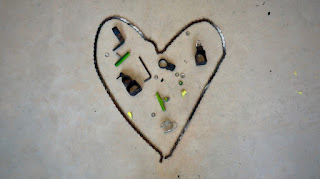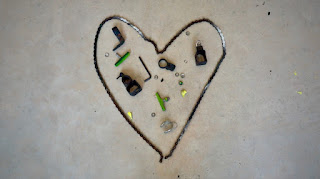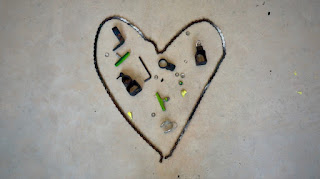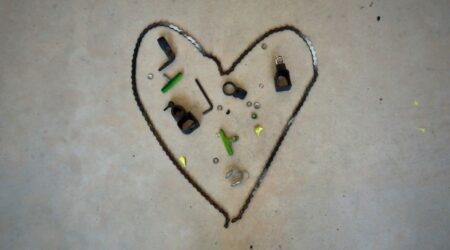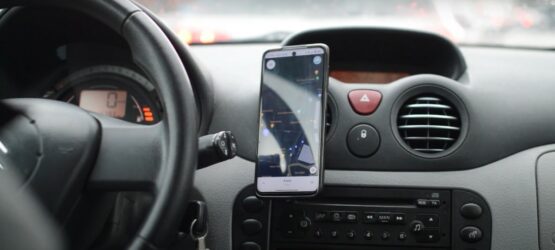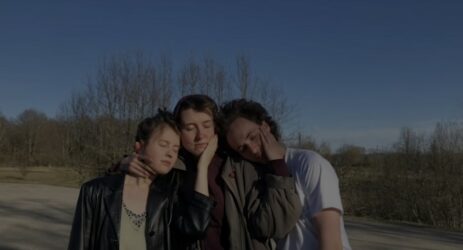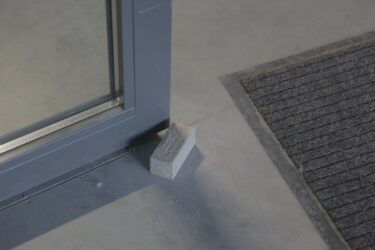Academic Affairs OfficeAccessory DesignAnimationArchitecture and Urban DesignArt EducationCenter for Flat TechnologiesCeramicsCultural Heritage and ConservationDepartmentsDesign and Technology FuturesDoctoral SchoolDrawingFacilities and WorkshopsFaculty of ArchitectureFaculty of Art and CultureFaculty of DesignFaculty of Fine ArtsFashion DesignFinancial DepartmentGalleryGlass ArtGraphic ArtGraphic DesignInstallation and SculptureInstitute of Art History and Visual CultureInternational OfficeIT OfficeJewellery and BlacksmithingLandscape ArchitectureLibraryLinnaehitus @enMaking SpaceNew MediaOffice of the RectorateOpen AcademyPaintingPerforming ArtsPhotographyProduct DesignRectorateResearch and Development OfficeScenographySupport UnitsTextile DesignUncategorizedUrban PlanningUrban Studies
Category: Departments
28.04.2022 — 05.05.2022
Inna Tarakanova “Wish You Were Here”
Showcase Gallery
My work depicts long-distance relationship and the precariousness of mental existence in two places simultaneously. It is possible to overcome the distance if locate oneself in a virtual reality for a moment. I have used different collage techniques in making the image. Two images have been cut out of their context and placed closer to each other. Deconstructed parts are creating a new reality that is fragmented and detached.
Posted by Maris Karjatse — Permalink
Inna Tarakanova “Wish You Were Here”
Thursday 28 April, 2022 — Thursday 05 May, 2022
Showcase Gallery
My work depicts long-distance relationship and the precariousness of mental existence in two places simultaneously. It is possible to overcome the distance if locate oneself in a virtual reality for a moment. I have used different collage techniques in making the image. Two images have been cut out of their context and placed closer to each other. Deconstructed parts are creating a new reality that is fragmented and detached.
Posted by Maris Karjatse — Permalink
05.05.2022
Open Lecture: “Artificial Intelligence and the Future of Design” Antoine Picon
Architecture and Urban Design
On May 5th at 6 pm, our Faculty of Architecture will be happy to present architect and historian researching the history of architecture and urban technologies, Professor Antoine Picon with an open lecture titled “Artificial Intelligence and the Future of Design” at the EKA Main Hall.
Will artificial intelligence really impact design practice? If such is the case, what role would be left to humans in a more and more machine-driven context? The lecture will explore some of the possible scenarios linked to the rise of artificial intelligence. Central to these scenarios will be the question of the distribution of agency between humans and machines.
Antoine Picon is the G. Ware Travelstead Professor of the History of Architecture and Technology and Director of Research at the Harvard GSD and Director of Research at the Ecole Nationale des Ponts et Chaussées in Paris. Trained as an engineer, architect, and historian, Picon works on the history of architectural and urban technologies from the eighteenth century to the present. He has published extensively on this subject.
Open Lectures are open to all architecture and design students, professionals and general audience intrigued by spatial and design matters. The lecture is in English and free of charge.
The lecture is one of the subject pre-lectures of the Conference “Innovation and Digital Reality” which takes place 6th of September 2022 in EKA: https://www.artun.ee/…/conference-innovation-and…/
The lecture and conference are supported by Estonian Association of Architects, European Regional Development Fund and EKA.
Posted by Andres Lõo — Permalink
Open Lecture: “Artificial Intelligence and the Future of Design” Antoine Picon
Thursday 05 May, 2022
Architecture and Urban Design
On May 5th at 6 pm, our Faculty of Architecture will be happy to present architect and historian researching the history of architecture and urban technologies, Professor Antoine Picon with an open lecture titled “Artificial Intelligence and the Future of Design” at the EKA Main Hall.
Will artificial intelligence really impact design practice? If such is the case, what role would be left to humans in a more and more machine-driven context? The lecture will explore some of the possible scenarios linked to the rise of artificial intelligence. Central to these scenarios will be the question of the distribution of agency between humans and machines.
Antoine Picon is the G. Ware Travelstead Professor of the History of Architecture and Technology and Director of Research at the Harvard GSD and Director of Research at the Ecole Nationale des Ponts et Chaussées in Paris. Trained as an engineer, architect, and historian, Picon works on the history of architectural and urban technologies from the eighteenth century to the present. He has published extensively on this subject.
Open Lectures are open to all architecture and design students, professionals and general audience intrigued by spatial and design matters. The lecture is in English and free of charge.
The lecture is one of the subject pre-lectures of the Conference “Innovation and Digital Reality” which takes place 6th of September 2022 in EKA: https://www.artun.ee/…/conference-innovation-and…/
The lecture and conference are supported by Estonian Association of Architects, European Regional Development Fund and EKA.
Posted by Andres Lõo — Permalink
29.04.2022
Urban Ethnography – Technoecologies of care. Final presentations
Urban Studies
Taking technoecologies of care in (hard or soft) urban infrastructure as a starting point, the Urban Ethnography course (tutors: Agata Marzecova and Hanna Husberg) uses ethnographic strategies to make perceptible interdisciplinary phenomena that cannot be described from a disciplinary perspective. During the course the participants are encouraged to develop collaborative research projects that explore boundary approaches to ethnography by critically employing creative and artistic research methods in the research process, as well as for conveying their research results.
Whereas ecology can be understood as a science of relatedness between things, beings and processes that make up urban nature or urban space, technoecologies allows an analysis of the entanglement of technologies and natures, and draws attention to how the materialisation of nature is always and already a mediated phenomenon. Subsequently, addressing care through its technoecologies allows for a prism through which human, non-human and technological elements are treated not as separate entities but as interrelated aspects of care, maintenance and repair.
The finals will start at 14:00 with four group presentations by students (abstracts below). This will be followed by a presentation starting at 17.30 by our external reviewer, Swedish-Brazilian artist, researcher, writer and Senior Lecturer in Media and Communication Studies at Södertörn University (Stockholm), Isabel Löfgren. Lögfgren often works in collaboration with artistic collectives and art institutions considering issues in visual, gender, social and environmental justice and her research interests include cultural politics, aesthetics, and the philosophy of migration and diaspora in the fields of contemporary art, media philosophy, and media activism.
Facebook event can be found HERE.
Pimp my bike
By Martina Maria Semenzato, Leonardo Improta , Paul Jochen Simon

As our project, we transformed the “simple” act of fixing a bicycle into an introspective investigation of the concept of care and its implications. Within a few weeks, we collaboratively tried to bring life into a neglected two-wheeler. In all repairing sessions we took time for self-reflection, retracing the steps, thoughts and actions performed. By this, we tried to dig out the underlying patterns that are connected to our doing. Analysing the process brought up several challenges and questions. Is fixing the bike an act of care that we do towards the object, or towards ourselves? How are gender roles manifested in our actions? Can you break something as an act of maintenance? Is it necessary to receive care in order to perform an act of care? Is the concept of care an act of pure altruism, completely unrelated to any kind of end or return? Are we doing this project merely out of selfishness aimed at completing an assigned task to get a grade? What does care mean for us? Finally, the reflections were transformed into a video installation that will be displayed this Friday.
(No) More Stretch Please – Manifesto for (In)Flexibility
By Paula Kristiāna Veidenbauma, Jannik Kastrup, Luca Liese Ritter

We have a problem. At the Estonian Academy of Arts, a room can become an exhibition hall, a hallway can be turned into a conference center, any of the concrete walls—into galleries, waiting for the next vernissage to start. The architecture of EKA’s new building bears unending potential imaginaries, designed as always hybrid, always adaptable, and ever-changing. But how much space is left for flexibility in the program designs? And how does it show in the program implementation? Does the immaterial system behind the space provide a flexible support mechanism for students when in need or is flexibility ultimately a false promise, disguising flaws within the university’s structure?
The project examines the relationship between the flexible-oh-so-flexible working environment and culture at the university and the systematic framework of program structures at the EKA Faculty of Architecture. Grounded in our own experience, observations and private stories of students, at times faced with the limits of the flexibility, The Manifesto for (In)Flexibility is both an attempt to gain visibility of the invisible sufferings at an institution deeply grounded within the landscape of neoliberal academia, as well as a manual on how to resist the institutional normalisation of overworking. Presented in a form of a performative reading, the project includes movement practices addressing space exploration, testing the limits of the flexibility of one’s body and those of the space, thinking, where would they meet.

the door stop
By Nora Soo, Kush Badhwar, Khadeeja Farrukh

The new building for the Estonian Academy of Arts (EKA), made amongst the remains of an old textile factory, was opened for use in 2018. The ground for a newer EKA building is being prepared behind the current building. A new green sign, with the signature EKA typeface was erected to mark this site within the last week.
Part of the process of envisioning, designing and producing new and newer EKA buildings, is the narrativisation and historicisation of these sites, most visibly undertaken as marketing materials, often to attract new students to the university. the door stopis a zine that seeks to broaden narrativisation and historicisation of EKA through the observation, documentation, story-telling and imaginations of the building from the student perspective, with particular attention to use, care, appropriation, resistance, creative misuse, image-based intervention and other forms that fall outside of the intentions of the architect(s) and hegemony of the institution.
Composed of photography, text and sketches, the door stop, though limited to the perspective of three students, hopes to document the overlooked and the ephemeral; foster care, interest and engagement in the space amongst students + their future generations; and to possibly influence change in the production of further EKA buildings.
Looking for Action
By Christian Hörner, Paulina Schroeder, Nabeel Imtiaz
Techno-Ecologies of Care emerge throughout the entanglements between the courier, his mobile phone, the car, the food, and many other things, affording moments of caring for and about in this system of provision of life-sustaining matter. Our project tries to present illuminating documentation of the everyday work of a bolt food courier. These urban workers are often invisible, working under a highly neoliberal regime of platform capitalism. Also, they are directly exposed to novel algorithmic means which manage their routes and govern the relationship between couriers, restaurants, and customers which make up the urban space of food delivery. Our video emerged out of the empirical practice of participant observation and represents a methodical mixture of interview/conversation and active participation in the process of food delivery. We aim to shed light on the internalities of food delivery in the sense of capturing the potentially boring details of everydayness as proposed by Susan Leigh Star in her essay “The Ethnography of Infrastructure”.
Posted by Kaija-Luisa Kurik — Permalink
Urban Ethnography – Technoecologies of care. Final presentations
Friday 29 April, 2022
Urban Studies
Taking technoecologies of care in (hard or soft) urban infrastructure as a starting point, the Urban Ethnography course (tutors: Agata Marzecova and Hanna Husberg) uses ethnographic strategies to make perceptible interdisciplinary phenomena that cannot be described from a disciplinary perspective. During the course the participants are encouraged to develop collaborative research projects that explore boundary approaches to ethnography by critically employing creative and artistic research methods in the research process, as well as for conveying their research results.
Whereas ecology can be understood as a science of relatedness between things, beings and processes that make up urban nature or urban space, technoecologies allows an analysis of the entanglement of technologies and natures, and draws attention to how the materialisation of nature is always and already a mediated phenomenon. Subsequently, addressing care through its technoecologies allows for a prism through which human, non-human and technological elements are treated not as separate entities but as interrelated aspects of care, maintenance and repair.
The finals will start at 14:00 with four group presentations by students (abstracts below). This will be followed by a presentation starting at 17.30 by our external reviewer, Swedish-Brazilian artist, researcher, writer and Senior Lecturer in Media and Communication Studies at Södertörn University (Stockholm), Isabel Löfgren. Lögfgren often works in collaboration with artistic collectives and art institutions considering issues in visual, gender, social and environmental justice and her research interests include cultural politics, aesthetics, and the philosophy of migration and diaspora in the fields of contemporary art, media philosophy, and media activism.
Facebook event can be found HERE.
Pimp my bike
By Martina Maria Semenzato, Leonardo Improta , Paul Jochen Simon

As our project, we transformed the “simple” act of fixing a bicycle into an introspective investigation of the concept of care and its implications. Within a few weeks, we collaboratively tried to bring life into a neglected two-wheeler. In all repairing sessions we took time for self-reflection, retracing the steps, thoughts and actions performed. By this, we tried to dig out the underlying patterns that are connected to our doing. Analysing the process brought up several challenges and questions. Is fixing the bike an act of care that we do towards the object, or towards ourselves? How are gender roles manifested in our actions? Can you break something as an act of maintenance? Is it necessary to receive care in order to perform an act of care? Is the concept of care an act of pure altruism, completely unrelated to any kind of end or return? Are we doing this project merely out of selfishness aimed at completing an assigned task to get a grade? What does care mean for us? Finally, the reflections were transformed into a video installation that will be displayed this Friday.
(No) More Stretch Please – Manifesto for (In)Flexibility
By Paula Kristiāna Veidenbauma, Jannik Kastrup, Luca Liese Ritter

We have a problem. At the Estonian Academy of Arts, a room can become an exhibition hall, a hallway can be turned into a conference center, any of the concrete walls—into galleries, waiting for the next vernissage to start. The architecture of EKA’s new building bears unending potential imaginaries, designed as always hybrid, always adaptable, and ever-changing. But how much space is left for flexibility in the program designs? And how does it show in the program implementation? Does the immaterial system behind the space provide a flexible support mechanism for students when in need or is flexibility ultimately a false promise, disguising flaws within the university’s structure?
The project examines the relationship between the flexible-oh-so-flexible working environment and culture at the university and the systematic framework of program structures at the EKA Faculty of Architecture. Grounded in our own experience, observations and private stories of students, at times faced with the limits of the flexibility, The Manifesto for (In)Flexibility is both an attempt to gain visibility of the invisible sufferings at an institution deeply grounded within the landscape of neoliberal academia, as well as a manual on how to resist the institutional normalisation of overworking. Presented in a form of a performative reading, the project includes movement practices addressing space exploration, testing the limits of the flexibility of one’s body and those of the space, thinking, where would they meet.

the door stop
By Nora Soo, Kush Badhwar, Khadeeja Farrukh

The new building for the Estonian Academy of Arts (EKA), made amongst the remains of an old textile factory, was opened for use in 2018. The ground for a newer EKA building is being prepared behind the current building. A new green sign, with the signature EKA typeface was erected to mark this site within the last week.
Part of the process of envisioning, designing and producing new and newer EKA buildings, is the narrativisation and historicisation of these sites, most visibly undertaken as marketing materials, often to attract new students to the university. the door stopis a zine that seeks to broaden narrativisation and historicisation of EKA through the observation, documentation, story-telling and imaginations of the building from the student perspective, with particular attention to use, care, appropriation, resistance, creative misuse, image-based intervention and other forms that fall outside of the intentions of the architect(s) and hegemony of the institution.
Composed of photography, text and sketches, the door stop, though limited to the perspective of three students, hopes to document the overlooked and the ephemeral; foster care, interest and engagement in the space amongst students + their future generations; and to possibly influence change in the production of further EKA buildings.
Looking for Action
By Christian Hörner, Paulina Schroeder, Nabeel Imtiaz
Techno-Ecologies of Care emerge throughout the entanglements between the courier, his mobile phone, the car, the food, and many other things, affording moments of caring for and about in this system of provision of life-sustaining matter. Our project tries to present illuminating documentation of the everyday work of a bolt food courier. These urban workers are often invisible, working under a highly neoliberal regime of platform capitalism. Also, they are directly exposed to novel algorithmic means which manage their routes and govern the relationship between couriers, restaurants, and customers which make up the urban space of food delivery. Our video emerged out of the empirical practice of participant observation and represents a methodical mixture of interview/conversation and active participation in the process of food delivery. We aim to shed light on the internalities of food delivery in the sense of capturing the potentially boring details of everydayness as proposed by Susan Leigh Star in her essay “The Ethnography of Infrastructure”.
Posted by Kaija-Luisa Kurik — Permalink
07.09.2022 — 20.11.2022
TAB Tallinn Architecture Biennial 2022
Faculty of Architecture
The main program of the Tallinn Architecture Biennale 2022 combines food and architecture
The 6th Tallinn Architecture Biennale “Edible; Or, The Architecture of Metabolism” invites architects and architecture enthusiasts to think about a sustainable future, where natural processes are used and waste is reduced.
Biennale curators Lydia Kallipoliti (Greece/USA) and Areti Markopoulou (Spain/Greece) in cooperation with Estonian adviser Ivan Sergejev and curator’s assistant Sonia Sobrino Ralston (USA) give architects, planners and environmental designers the opportunity to discuss and explore how through architecture it is possible to influence circular economy operations such as food and energy production and resource degradation.
TAB 2022 chief curators Lydia Kallipoliti and Areti Markopoulou are critical of the consuming and polluting human-made environment and invite to imagine an architecture that produces resources and uses and decomposes its waste. “Amid the current crisis of public health, climate change and social inequality, it is clear that the fragility of our supply chains requires new forms of local sourcing and production. TAB 2022 addresses the question of ‘where our food comes from’ as a creative design challenge and raises questions about the aesthetic, cultural and experiential qualities of the environment around us throughout its life cycle,” explained TAB 2022 chief curators Kallipoliti and Markopoulou.
Estonian Academy of Arts is happy to contribute to the versatile programme of TAB with international conference “Innovation and Digital Reality”, taking place on 6 September at EKA. Read more and sign up.
See the entire TAB 2022 program here: https://2022.tab.ee/et/programm/
The curatorial exhibition “Edible” brings together world-class designers and architects, whose works are divided into five thematic blocks: Metabolic Home, From Stone to Mull, Food and Geopolitics, Archeology of Architecture and Food Systems, and Future Food.
In addition, the chief curators have put together a 2-day “Edible” conference program for architects, designers and others interested in the space. The program includes exciting discussions about the importance of design in urban space, the effects of history on today’s environment, as well as discussions about the city of the future. The main speakers of the symposium will be Beatriz Colomina, the well-known author of design books, Andrés Jaque, the head of the design and research studio Effekt and the research center Office for Political Innovation.
As part of the TAB 2022 installation competition, the installation “Fungible Non Fungible” by IHEARTBLOB (Austria, UK, Estonia) will appear in front of the Estonian Museum of Architecture. It is the world’s first blockchain-financed architectural project. Their work gives a completely new dimension to the traditional role of an architect – an architect is no longer just a master, but a system designer who brings together innovative technologies, encouraging communities and local masters to be part of the creative process. For this, the IHEARTBLOB team is creating a NFT (Non-Fungible Token) platform where those who wish can design and buy a piece of the work. The result is a unique installation created and owned by different designers from all over the world. The platform for joint design of the installation will be opened in May.
The main program of TAB 2022 consists of five parts: a curatorial exhibition and an installation competition program at the Estonian Museum of Architecture, a 2-day symposium and a vision competition exhibition at the Kultuurikatel, and an international exhibition of architecture schools at the EKKM garden.
TAB 2022 invites all Ukrainian architects to participate in the TAB program free of charge. More information about free admission at info@tab.ee.
The main sponsor of the Tallinn Architecture Biennale 2022 is Thermory – the world’s largest manufacturer of chemical-free thermal wood, whose material has been used in outstanding projects in more than 50 countries around the world.
Supporters and partners of TAB 2022: Ministry of Culture, Cultural Endowment, European Development Fund, British Council, Onassis Culture, Visit Estonia, Association of Estonian Architects, Estonian Architecture Museum, Tallinn City Planning Board, IAAC, Friendship Products, Laufen, Ruukki, Velux, Tallink Hotels, Estonian Academy of Arts.
Posted by Triin Männik — Permalink
TAB Tallinn Architecture Biennial 2022
Wednesday 07 September, 2022 — Sunday 20 November, 2022
Faculty of Architecture
The main program of the Tallinn Architecture Biennale 2022 combines food and architecture
The 6th Tallinn Architecture Biennale “Edible; Or, The Architecture of Metabolism” invites architects and architecture enthusiasts to think about a sustainable future, where natural processes are used and waste is reduced.
Biennale curators Lydia Kallipoliti (Greece/USA) and Areti Markopoulou (Spain/Greece) in cooperation with Estonian adviser Ivan Sergejev and curator’s assistant Sonia Sobrino Ralston (USA) give architects, planners and environmental designers the opportunity to discuss and explore how through architecture it is possible to influence circular economy operations such as food and energy production and resource degradation.
TAB 2022 chief curators Lydia Kallipoliti and Areti Markopoulou are critical of the consuming and polluting human-made environment and invite to imagine an architecture that produces resources and uses and decomposes its waste. “Amid the current crisis of public health, climate change and social inequality, it is clear that the fragility of our supply chains requires new forms of local sourcing and production. TAB 2022 addresses the question of ‘where our food comes from’ as a creative design challenge and raises questions about the aesthetic, cultural and experiential qualities of the environment around us throughout its life cycle,” explained TAB 2022 chief curators Kallipoliti and Markopoulou.
Estonian Academy of Arts is happy to contribute to the versatile programme of TAB with international conference “Innovation and Digital Reality”, taking place on 6 September at EKA. Read more and sign up.
See the entire TAB 2022 program here: https://2022.tab.ee/et/programm/
The curatorial exhibition “Edible” brings together world-class designers and architects, whose works are divided into five thematic blocks: Metabolic Home, From Stone to Mull, Food and Geopolitics, Archeology of Architecture and Food Systems, and Future Food.
In addition, the chief curators have put together a 2-day “Edible” conference program for architects, designers and others interested in the space. The program includes exciting discussions about the importance of design in urban space, the effects of history on today’s environment, as well as discussions about the city of the future. The main speakers of the symposium will be Beatriz Colomina, the well-known author of design books, Andrés Jaque, the head of the design and research studio Effekt and the research center Office for Political Innovation.
As part of the TAB 2022 installation competition, the installation “Fungible Non Fungible” by IHEARTBLOB (Austria, UK, Estonia) will appear in front of the Estonian Museum of Architecture. It is the world’s first blockchain-financed architectural project. Their work gives a completely new dimension to the traditional role of an architect – an architect is no longer just a master, but a system designer who brings together innovative technologies, encouraging communities and local masters to be part of the creative process. For this, the IHEARTBLOB team is creating a NFT (Non-Fungible Token) platform where those who wish can design and buy a piece of the work. The result is a unique installation created and owned by different designers from all over the world. The platform for joint design of the installation will be opened in May.
The main program of TAB 2022 consists of five parts: a curatorial exhibition and an installation competition program at the Estonian Museum of Architecture, a 2-day symposium and a vision competition exhibition at the Kultuurikatel, and an international exhibition of architecture schools at the EKKM garden.
TAB 2022 invites all Ukrainian architects to participate in the TAB program free of charge. More information about free admission at info@tab.ee.
The main sponsor of the Tallinn Architecture Biennale 2022 is Thermory – the world’s largest manufacturer of chemical-free thermal wood, whose material has been used in outstanding projects in more than 50 countries around the world.
Supporters and partners of TAB 2022: Ministry of Culture, Cultural Endowment, European Development Fund, British Council, Onassis Culture, Visit Estonia, Association of Estonian Architects, Estonian Architecture Museum, Tallinn City Planning Board, IAAC, Friendship Products, Laufen, Ruukki, Velux, Tallink Hotels, Estonian Academy of Arts.
Posted by Triin Männik — Permalink
21.04.2022 — 28.04.2022
Alina Birjuk “May there be enough bread!”
Photography
Estonian sayings “one has to honour bread” or “bread is older than us” refer to the special meaning of bread. Numerous traditions, beliefs, rituals and proverbs are associated to bread. The taste and form of bread has not changed throughout centuries and breakbaking is a very special skill. For me, bread is something that makes me think of my great-grandparents and my roots. I decided to photograph bread against the white backdrop where the time of the picture-taking is imperceptible. Bread is the centerpiece of attention while its texture and form has been emphasized.
Posted by Maris Karjatse — Permalink
Alina Birjuk “May there be enough bread!”
Thursday 21 April, 2022 — Thursday 28 April, 2022
Photography
Estonian sayings “one has to honour bread” or “bread is older than us” refer to the special meaning of bread. Numerous traditions, beliefs, rituals and proverbs are associated to bread. The taste and form of bread has not changed throughout centuries and breakbaking is a very special skill. For me, bread is something that makes me think of my great-grandparents and my roots. I decided to photograph bread against the white backdrop where the time of the picture-taking is imperceptible. Bread is the centerpiece of attention while its texture and form has been emphasized.
Posted by Maris Karjatse — Permalink
21.04.2022 — 28.04.2022
Katerina Rothberg “Exit”
Showcase Gallery
Current work is a photo montage that has been combined by a staged studio photograph as well as a view from my window. This is the view of Lasnamäe district, Tallinn, where I lived fifteen years ago and temporarily living now. Nothing has changed – the same monotonousness and hopelessness, the same sad buildings and empty looks – and again I feel the need to escape this place. I am looking up – where the blue sky is, knowing that there is always a way out.
Posted by Maris Karjatse — Permalink
Katerina Rothberg “Exit”
Thursday 21 April, 2022 — Thursday 28 April, 2022
Showcase Gallery
Current work is a photo montage that has been combined by a staged studio photograph as well as a view from my window. This is the view of Lasnamäe district, Tallinn, where I lived fifteen years ago and temporarily living now. Nothing has changed – the same monotonousness and hopelessness, the same sad buildings and empty looks – and again I feel the need to escape this place. I am looking up – where the blue sky is, knowing that there is always a way out.
Posted by Maris Karjatse — Permalink
20.04.2022
Jerry Mercury presents: “The Non-Lonelineness Train”
Faculty of Fine Arts
On Monday, April 20, at 16:00, artist Jerry Mercury will screen his video work “The Non-Lonelineness Train” at the Estonian Academy of Arts auditorium room A-101, following there will be an artist discussion lead by Ryan Galer.
Dedicated to the advocacy of neurodivergent people, the film provides an insight into Jerry Mercury’s experience of neurodivergence. Fluctuating between meditation and reflection, interview and autobiography, metaphor and reality, the film resists exclusive rationality, offering a deeper and more nuanced portrayal of identity.
The film is in Russian with English subtitles. (30 minutes)
Jerry Mercury is a Russian non-binary transgender neurodivergent self-advocate, poet, musician, artist, filmmaker, and blogger. In The Non-Loneliness Train, theater director Boris Pavlovich interviews Jerry, who welcomes the viewer to step into the shoes of a neurodivergent person in today’s Russia.
Posted by Andres Lõo — Permalink
Jerry Mercury presents: “The Non-Lonelineness Train”
Wednesday 20 April, 2022
Faculty of Fine Arts
On Monday, April 20, at 16:00, artist Jerry Mercury will screen his video work “The Non-Lonelineness Train” at the Estonian Academy of Arts auditorium room A-101, following there will be an artist discussion lead by Ryan Galer.
Dedicated to the advocacy of neurodivergent people, the film provides an insight into Jerry Mercury’s experience of neurodivergence. Fluctuating between meditation and reflection, interview and autobiography, metaphor and reality, the film resists exclusive rationality, offering a deeper and more nuanced portrayal of identity.
The film is in Russian with English subtitles. (30 minutes)
Jerry Mercury is a Russian non-binary transgender neurodivergent self-advocate, poet, musician, artist, filmmaker, and blogger. In The Non-Loneliness Train, theater director Boris Pavlovich interviews Jerry, who welcomes the viewer to step into the shoes of a neurodivergent person in today’s Russia.
Posted by Andres Lõo — Permalink
14.04.2022 — 21.04.2022
Katerina Sarapova “Mental Trap”
Showcase Gallery
My idea was to reflect self-conditioning through staged photography, a state of being trapped by my thoughts and feelings where negative beliefs alarm negative emotions, which in turn affects the mind. A model’s moving body is captured in a studio with long exposure in order to highlight the inseparability of mental and physical health. A bright figure positioned in a dark background emphasizes the condition of being trapped and vulnerability.
Posted by Maris Karjatse — Permalink
Katerina Sarapova “Mental Trap”
Thursday 14 April, 2022 — Thursday 21 April, 2022
Showcase Gallery
My idea was to reflect self-conditioning through staged photography, a state of being trapped by my thoughts and feelings where negative beliefs alarm negative emotions, which in turn affects the mind. A model’s moving body is captured in a studio with long exposure in order to highlight the inseparability of mental and physical health. A bright figure positioned in a dark background emphasizes the condition of being trapped and vulnerability.
Posted by Maris Karjatse — Permalink
14.04.2022 — 21.04.2022
Cristiana Fertuzinhos “Triinu & Arvi”
Showcase Gallery
I am exploring themes of intimacy, human connection and sexuality through my work. A portrait of this couple is part of an ongoing documentary photography series.
Posted by Maris Karjatse — Permalink
Cristiana Fertuzinhos “Triinu & Arvi”
Thursday 14 April, 2022 — Thursday 21 April, 2022
Showcase Gallery
I am exploring themes of intimacy, human connection and sexuality through my work. A portrait of this couple is part of an ongoing documentary photography series.
Posted by Maris Karjatse — Permalink
21.04.2022
Open Architecture Lecture: Jurga Daubaraitė ja Jonas Žukauskas
Architecture and Urban Design
The final event of the spring lecture series will take place on April 21 at 6 pm, when Jurga Daubaraitė and Jonas Žukauskas, an architectural duo operating in Vilnius, will take to the stage in Tallinn.
Jurga Daubaraitė and Jonas Žukauskas are a duo of spatial practitioners based in Vilnius. They research histories and materialities of colonisations and modernisations through which built environment, infrastructures, extraction networks were deployed to shape geographies and culture of the Baltic States, now integral part of the European Project. In this context they curate cultural processes, propose spatial concepts and architectural projects.
Recently they have established collective Talka talka and in collaboration with Egija Inzule are working on the Neringa Forest Architecture project to initiate platforms for culture practices to address controversy between extraction, biodiversity and sustainability in the forest space.
***
The series of open architecture lectures will take place this spring under the title “Close enough” and will bring architects from Latvia and Lithuania to the stage in Tallinn. We will examine how our neighbours operate topics arising from similar built environments and history.
***
The lectures are intended for students and professionals from any and all disciplines – not just in the field of architecture. All lectures take place in the large auditorium of EKA, are in English and free of charge.
***
We will also broadcast the lecture on EKA TV https://tv.artun.ee/eka and it can be viewed along with all previous lectures at www.avatudloengud.ee as well as the faculty’s Youtube channel.
Curators: Sille Pihlak and Johan Tali.
The season of open lectures is supported by the Estonian Cultural Endowment.
***
Posted by Tiina Tammet — Permalink
Open Architecture Lecture: Jurga Daubaraitė ja Jonas Žukauskas
Thursday 21 April, 2022
Architecture and Urban Design
The final event of the spring lecture series will take place on April 21 at 6 pm, when Jurga Daubaraitė and Jonas Žukauskas, an architectural duo operating in Vilnius, will take to the stage in Tallinn.
Jurga Daubaraitė and Jonas Žukauskas are a duo of spatial practitioners based in Vilnius. They research histories and materialities of colonisations and modernisations through which built environment, infrastructures, extraction networks were deployed to shape geographies and culture of the Baltic States, now integral part of the European Project. In this context they curate cultural processes, propose spatial concepts and architectural projects.
Recently they have established collective Talka talka and in collaboration with Egija Inzule are working on the Neringa Forest Architecture project to initiate platforms for culture practices to address controversy between extraction, biodiversity and sustainability in the forest space.
***
The series of open architecture lectures will take place this spring under the title “Close enough” and will bring architects from Latvia and Lithuania to the stage in Tallinn. We will examine how our neighbours operate topics arising from similar built environments and history.
***
The lectures are intended for students and professionals from any and all disciplines – not just in the field of architecture. All lectures take place in the large auditorium of EKA, are in English and free of charge.
***
We will also broadcast the lecture on EKA TV https://tv.artun.ee/eka and it can be viewed along with all previous lectures at www.avatudloengud.ee as well as the faculty’s Youtube channel.
Curators: Sille Pihlak and Johan Tali.
The season of open lectures is supported by the Estonian Cultural Endowment.
***
Posted by Tiina Tammet — Permalink

